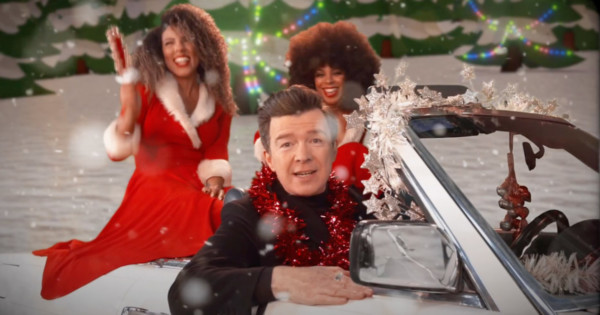
In 1987, singer-songwriter Rick Astley didn’t know he was recording a song that would arguably define his music career and make him the face of a bait-and-switch prank on the Internet. He also did not fully realize he was setting himself up for a future in advertising.
Now in 2020, thanks to his biggest hit, “Never Gonna Give You Up,” Astley has worked with brands like Virgin Mobile, GoDaddy, Ancestry.com and now Frito-Lay.
We sat down virtually with Astley this week to talk about his latest campaign, as well as what he’s learned about advertising and social media over the years—and the enduring appeal of Never Gonna Give You Up.
This interview has been edited for length and clarity.
Adweek: What can you tell us about this new campaign?
Astley: I do get the odd offer to do things of this nature and I’m very, very conscious of what the things are. When I was probably 21 or 22, I did a soft drink advert for a company in Japan. And I was very, very conscious of, “Is it super sugary?” Even in those days, it was becoming a thing, you know what I mean?
I’m personally becoming conscious more and more of what I eat and so it made a bit of sense that it’s helping people possibly make a healthier choice. And I’m all for that, to be honest.
Never Gonna Give You Up, which is featured in a new Frito-Lay campaign, was released 33 years ago. Why do think this song has endured?
I don’t know, really. If I knew that, I could probably predict the next one and I’d be writing it. But I have no idea. It was a bit of an unusual record in the time that it came out in the sense that it was number one everywhere. And it just wouldn’t go away that summer and all that year because obviously it came out the year after in America and different places.
I think we just got lucky. Certain producers and songwriters will tell you they know exactly what they’re doing. I don’t think they do. I just think there’s a magic dust that appears in the studio that day and it just works, you know?
Did you realize what exactly you were creating at the time?
It felt good. I remember I had a cassette demo and I had it in my car and I played it to friends and stuff and every one of them kind of was like, “Yeah. …” Even the ones who didn’t like it said it was pretty catchy. So I think we knew we had a chance with it. But you don’t expect to be number one in America.
It’s now been featured in countless ads—what have you learned about marketing and advertising since then?
When you’re going to make a music video, even if you’re hiring a director, it is your thing at the end of the day, whereas with a commercial, you’re jumping into someone else’s well. And so much gets talked about so there’s no surprises on the day and everyone’s comfortable and everyone knows what they’re doing. But the truth of it is you are actually fitting into someone else’s world. And so I think you’ve just got to make sure you’re comfortable about that before you do it.
You mentioned an interest in healthy brands—is there anything else you look for in the brands you work with?
https://www.adweek.com/brand-marketing/rick-astley-now-a-tiktok-star-isnt-sure-he-could-have-broken-out-in-2020/

